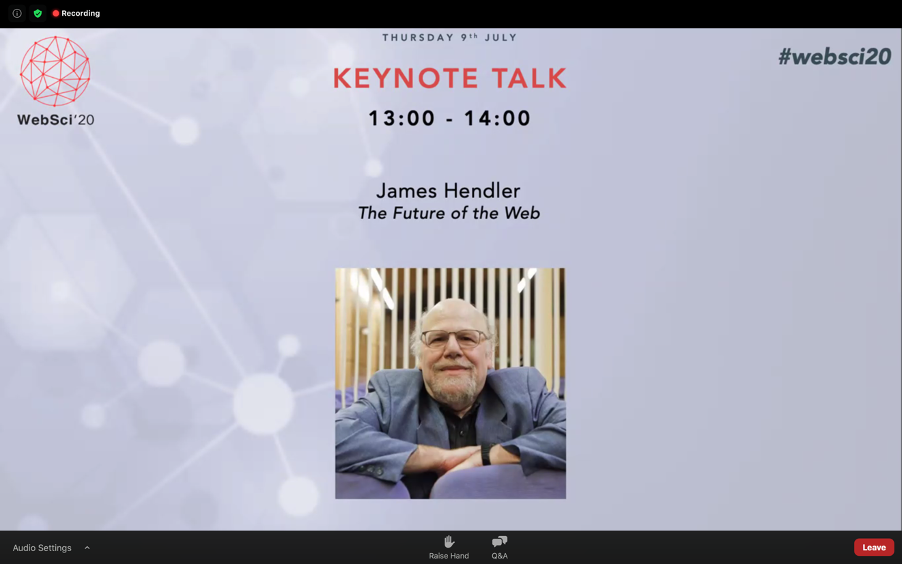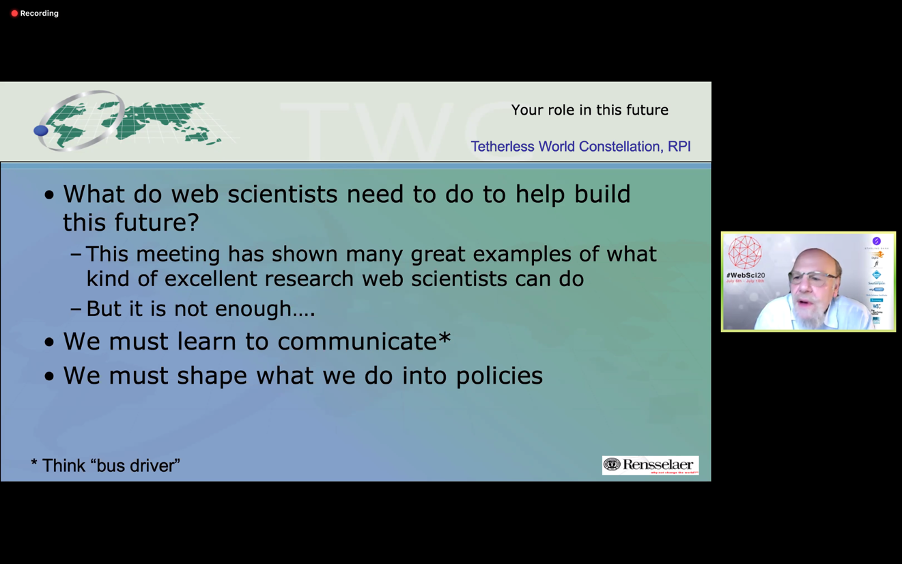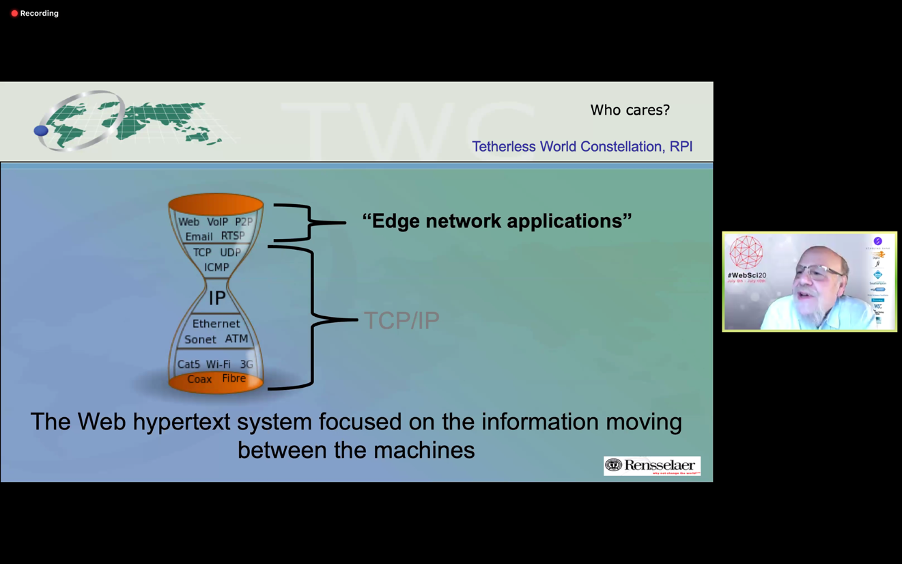#WebSci20 – Keynote: James Hendler – The Future(s) of the Web by Juljan Krause
Posted on behalf of Juljan Krause
In this engaging keynote, James Hendler called on everyone who researches the Web to get involved in shaping it.
Jim first made clear that the Web and the Internet are not the same and explained how some of the misconceptions that people used to have played out at the time when the Web was just one of many edge network applications that sit on the Internet. He pointed out how 20 years ago, the Web wasn’t really considered part of the Computer Science community discourse. The launch of Web Science then was very much about making the Web a proper object of study. Since then it has always been a major concern of Web Science to analyse big macro questions at the intersections of people, systems, ideas and computational infrastructures.
With the emergence of e-commerce, the world certainly changed so that the Web itself has become a development platform – it is no longer “just” an application that sits on some network. Many successful companies, in particular search engine and social media giants, have come to represent the Web even though they’ve dropped references to WWW and http. The Web has long stopped being a uniform entity, an evolutionary development that was really pushed further by the emergence of apps and smart devices.
Jim pointed to an increasing lack of interoperability today, e.g. in terms of searching the Web (e.g. Google versus Baidu). There are competing financial and political interests that have led to a fragmentation of the Web. The issue of fake news is another example of the troublesome developments with which the Web is associated.
However, Jim made it very clear that there is a lot that the Web has achieved, in particular in terms of promoting openness and transparency. The GDPR is one of many examples. In this keynote, Jim called on Web Scientists to actively engage in controversial debates and steer the Web towards a bright and open future for all. “The hard challenge is to get people to care”, Jim quotes from his conversations with researchers in Climate Science, “and the same is true for Web Science”. Web Scientists will need to learn to communicate better with all stakeholders in society – on all levels. Moving forward, Web Scientists need to get involved in shaping policy discourses and regulatory reforms. To this end, Jim’s keynote was very much an inspiring and passionate reminder that the future of the Web is open: it is what all of us, together, make it to be.



